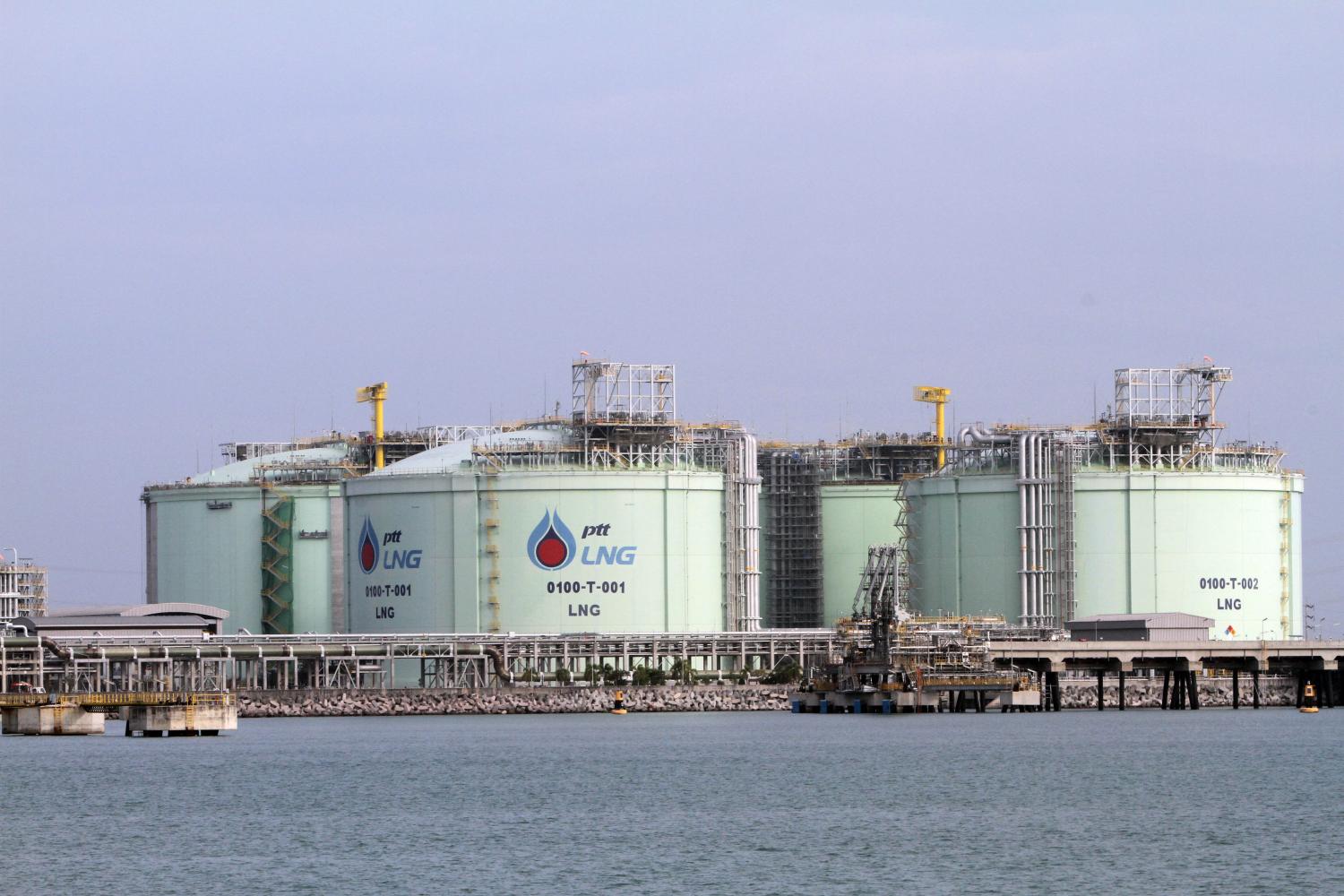
The Energy Ministry has thrown full support behind a plan by state-owned energy firms to import additional liquefied natural gas (LNG) from spot markets, where LNG has hit record low prices, in order to lower energy costs.
The move aims to help businesses and homeowners struggling from the lockdown, and save the government money as it is expected to spend some 70 billion baht on electricity bill relief measures.
National oil and gas conglomerate PTT and state-run Electricity Generating Authority of Thailand (Egat) reported they are purchasing LNG from spot markets, with six shipments at a total volume of 370,000 tonnes, arriving sometime this year.
Energy Minister Sontirat Sontijirawong said before the parties add additional volume, he must speak with other policymakers.
Gas makes up 60% of Thailand's power generation, followed by coal at 20%.
"We are looking at whatever we can do to trim down generation costs because the relief measures for power bills come at a high cost," Mr Sontirat said.
Egat has already imported the first shipment of 65,000 tonnes, and the second shipment of 65,000 tonnes is on route to Map Ta Phut deep-sea port.
PTT is in the process of purchasing the remaining four shipments from the spot market at a total volume of 240,000 tonnes this year.
Gas production resources in Thailand comprise several operators in the Gulf of Thailand importing via a gas pipeline from Myanmar's Martaban Sea and from barges at a combined capacity of 4.5 billion cubic feet per day.
The power generation sector uses most of the gas, with the rest going to industrial operators and transport as compressed natural gas.
A source who requested anonymity said the Energy Regulatory Commission is claiming Thailand has room to import LNG at quantities of 660,000 tonnes through 11 shipments without affecting the quantity of gas purchased or daily contract quantity.
If all LNG is imported at targeted volumes, the state grid could save as much as 4 billion baht on electricity costs.
"This depends on how much additional LNG at spot prices we should import," said the source.
Mr Sontirat said the spot market for LNG is declining and prices are lower than gas from the Gulf of Thailand.
Two years ago, the Energy Ministry initiated liberalisation measures for gas imports after granting PTT a monopoly in 2011, but the regulations and procedures took a long time to materialise.
Demand for electricity didn't increase dramatically during that period as economic growth has been meagre.
LNG prices dropped in the market during this period to a point low enough that extracting it from the Gulf of Thailand was not viable, so the government imports it instead.
Under the current regulations for LNG imports, PTT can import LNG immediately as the sole legal importer, but Egat is in the first stage of decentralising LNG imports, which started in 2018.
PTT president and chief executive Chansin Treenuchagron said the LNG spot market price is low because new production capacity of LNG, particularly from North America, has come online since last year, causing an oversupply in the global market.
"The record low LNG prices may last to the end of this year so we must import and store cheap gas in the Gulf of Thailand," he said.
PTT has a contract to import four shipments of LNG at an average price of US$3 per British thermal unit, with the first shipment already arriving at Map Ta Phut, said Mr Chansin.
The three other shipments will come to the seaport from May to June.
He said the delivery schedule for the existing annual 5.2 million tonnes of long-term LNG contract purchases will remain unchanged.
PTT's long-term purchase contracts include deals with Qatar Gas, Shell, BP and Petronas.